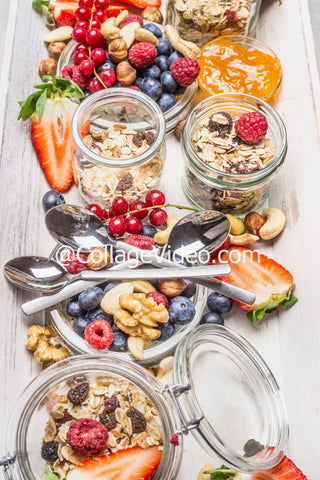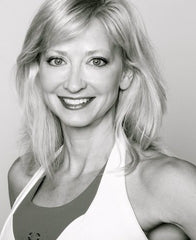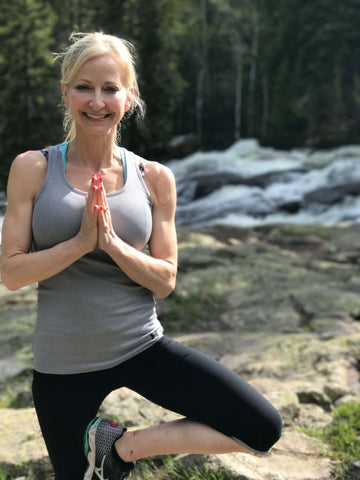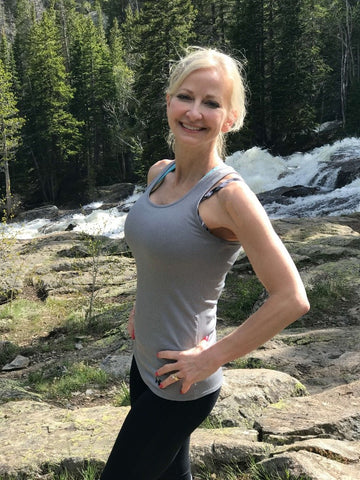What do I eat after I work out?
by Angie Miller
You just finished your five-mile run. Your muscles are depleted and you’re in need of nutrition, but how soon after you sweat should you be refueling and what should you eat to make the most of all your hard work? Here are few commonly asked questions and my tips for how to tackle your post-exercise nutrition plan.

The best post-workout diet tips
Before we take a bite out of post-exercise meals, let's talk post-workout hydration. Is water the best choice or should we be reaching for sports drinks?
Proper fluid balance is essential for athletes as well as recreational exercisers. Dehydration can negatively impact performance and when you don't get enough fluids it can interfere with your body's ability to maintain normal temperature. During most activities, water is adequate in order to prevent dehydration. However, during endurance events or activities greater than 60 minutes, a sports drink may be beneficial to enhance performance. The drink should contain carbohydrates to properly fuel the nervous and muscular systems. Specifically, for post-workout hydration, research suggests that for every pound of weight lost, drink approximately 16 to 20 ounces of fluid and then drink an additional 16 ounces of liquid with your post-workout meal.
How soon after a workout should we be eating a post-workout meal?
There is a window of opportunity or "metabolic window," that lasts approximately 60 to 90 minutes immediately following exercise, especially intense training. During this time, the body is most receptive to nutrient uptake and you have the best chance of reducing muscle damage. This window also allows you to maximize the strength and muscle gains achieved during your workout.
Should the post-exercise meal be solid foods or a liquid meal replacement?
The moment you cease exercise this window opens, and from that time on the benefits begin to decrease. Because it generally takes approximately 2 to 3 hours to digest solid food, consuming solid food may not be the best option during this time. Although nutrition bars with the proper carbohydrate, protein and fat ratios can be effectively used before and after exercise, liquid is generally recommended because of how quickly it is absorbed and nutrients are delivered to the muscles.
How soon after a hard and/or long workout can we eat solid foods? This is important for athletes and competitive exercisers who have rigorous training schedules. When it comes to consuming a post-event or post-exercise meal, one that consists of solid foods, most research supports that you should wait 1.5 to 2 hours after major activity depending on your post-training snack.

What are the specific benefits of post-exercise snacks?
For most recreational exercisers, post-workout feedings and snacks are not critical, but it can increase the potential benefits you receive from your workout, as well as help you to prevent injury, fight fatigue, and avoid the stress of over-training.
What is the bottom line answer when it comes to post-exercise meals? While post recovery snacks and meals are important, they are not as significant to recreational exercisers as they are to endurance athletes. I always encourage my clients to remember that there's research, and there's the "ideal," then there's real life. If you don't fuel according the latest research, that's not to say you won't reap rewards and experience positive results. It is suggesting that you get even better results when you fuel properly, as well as improve your performance. My advice is to do the best you can, and try to make health-conscious choices when it comes to diet and exercise, not just post-recovery, but all the time.
- Angie
Angie Miller, M.S., is a fitness educator, university instructor, and Licensed Professional Counselor who blends her skills and expertise to empower individuals, mentally and physically, and provide them the tools they need to succeed. A veteran group exercise instructor and personal trainer, Angie is the star of acclaimed exercise DVD’s, including the Bedroom Body™ workout. Her passion for progressive education brought her to Northern Illinois University, where she teaches in the Dept. of Kinesiology & Physical Education. Outside of the university, she presents at fitness conventions worldwide and leads industry trainings as an AFAA Certification Specialist and Kettlebell Concepts Master Instructor. Angie writes for fitness journals and digital communities, and blogs for Collage Video. Connect with Angie at: http://www.angiemillerfitness.com

















